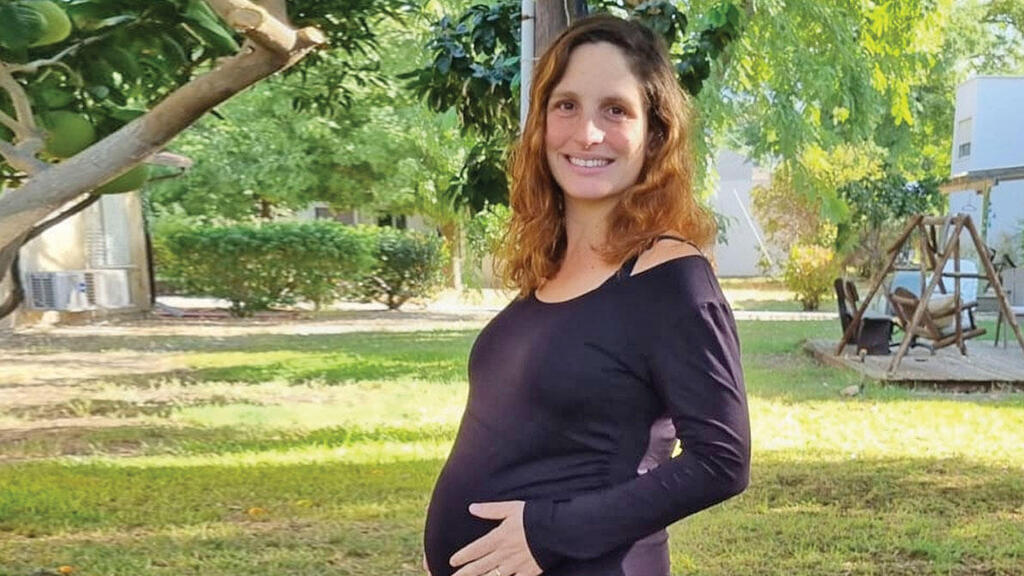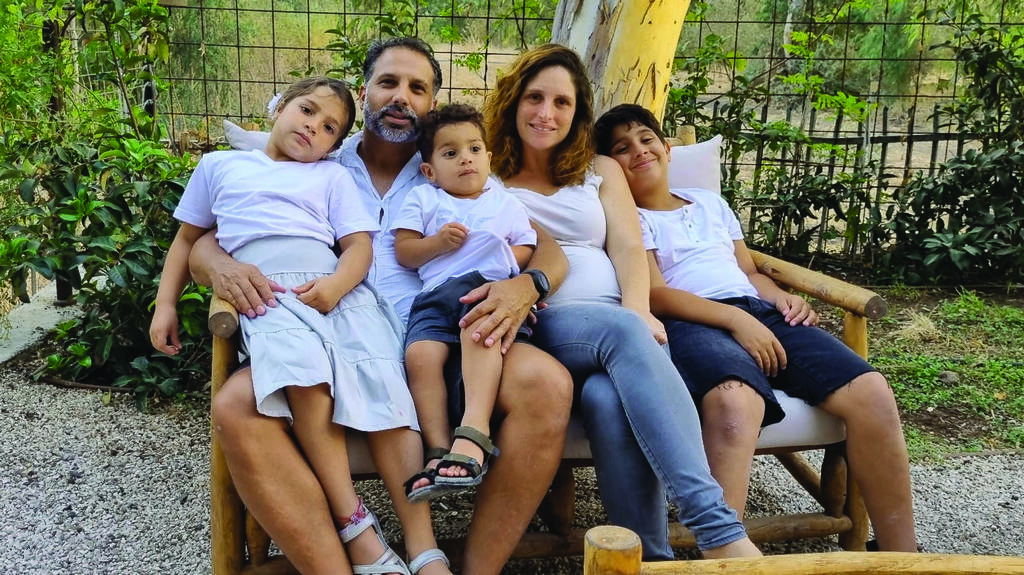Getting your Trinity Audio player ready...
Carmel Eliyahu-Zinger, 36, from Kibbutz Ma'agan, who is married and a mother of three and pregnant with twins as a surrogate, recounted the story of her decision to help other couples while also dealing with the war in Gaza, her role as director of rehabilitation services at Natan Medical and her husband’s service in the IDF reserves.
"The idea of surrogacy has been with me since my teenage years. I saw a film about it and thought it was the best thing one could do, but it stayed as just an idea. I met my husband when I was 17 and when I mentioned it to him before we got married, he was appalled.
“He felt it was like giving up your own baby, your flesh and blood. After our children were born, the topic occasionally came up. As I approached my 35th birthday I realized I wasn’t getting any younger and if I wanted to act, it had to be now,” she said.
“Before the war, the mood in Israel felt like a civil war was brewing and I felt I had to do something for others to avoid succumbing to that despair. One evening, amid dinner and bath routines, I casually mentioned it to my husband, and he said, 'Well, maybe now’s the right time.' I left my details with SurMom, a company specializing in surrogacy, and they got back to me within hours. It felt almost cosmic.”
“I underwent many tests before I even found a couple to carry for: childbirth summaries, gynecological check-ups, a breast surgeon evaluation and psychological assessments. Then the company sent me stories of potential couples.”
If a woman chooses this willingly, with her motives thoroughly vetted and uses her power and control over her body to give a gift to someone else, I think there’s nothing more empowering
“I initially thought I’d choose a same-sex couple for ideological reasons, but ultimately, a heterosexual couple’s story touched my heart and I couldn’t help but want to help them. My husband and I met them in July 2023 and the chemistry was immediate. From that moment, everything felt natural.”
“The war hit us during the peak of embryo transfers and hormonal treatments. My husband, a combat soldier and company commander, was in continuous reserve service from October to February, then received another call-up until recently.”
“I had to undergo intense hormonal treatments and frequent blood tests while managing three kids on my own. The emotional and physical strain was immense. At one point, I considered either committing fully or pausing and postponing the process, but I decided to continue for the sake of the couple.”
“I was juggling concerns for my husband, kids, home and work — I oversee rehabilitation services in the northern district of Natan Medical, supporting individuals with mental illnesses, and I’m also a psychotherapist. It was hard to manage everything and, just when I reached my limit, the third embryo transfer resulted in a pregnancy,” she recounted.
“I went to major check-ups with the intended parents and smaller ones on my own. My husband came home every three weeks to support and strengthen me, though the army didn’t grant him any exemptions because of me. Thankfully, I live in a kibbutz where friends could help with groceries and other tasks. My parents, in-laws and even my pregnant sister-in-law also pitched in.”
“Still, being a reservist’s wife is a lonely experience. One night, I woke up with a severe sore throat and a high fever, unsure whether to go to the hospital because I didn’t know who’d watch the kids if I were admitted.”
“People around me mostly asked why I was doing surrogacy, saying things like: 'You must be making a lot of money, enough to pay off your mortgage and loans.' I usually just go along with it and say, 'Sure, it’s all about the money.'”
“What they don’t understand is that the compensation — 170,000 shekels ($46,267) — won’t pay off a mortgage. What will I do with the money? Probably a family vacation and save the rest.”
“The pregnancy’s been challenging physically. Two embryos at 20 weeks and my belly is already huge. It’s heavy and I’m exhausted. But there’s something freeing about not having the anxieties of raising these children after birth. If these twins were mine, it’d be a very different experience. Knowing I’ll pass the child-rearing to someone else is liberating,” she said.
“There’s a debate in Israeli society about the ethics of surrogacy and the discussion itself highlights the issue. If a woman chooses this willingly, with her motives thoroughly vetted and uses her power and control over her body to give a gift to someone else, I think there’s nothing more empowering.”
Get the Ynetnews app on your smartphone: Google Play: https://bit.ly/4eJ37pE | Apple App Store: https://bit.ly/3ZL7iNv
“I understand why it could be seen as exploitation in developing countries where women may use their bodies to support their families or pay off debts. But anyone with the wrong motives wouldn’t pass the psychological screening in Israel.”
“Being a reservist’s wife makes you discover strengths you didn’t know you had. Another call-up is coming soon and it’s tough, but I’m proud of my husband. The pregnancy drains my resources and energy but it’s about giving to those who need it — and that’s a value I deeply connect with during this time."




